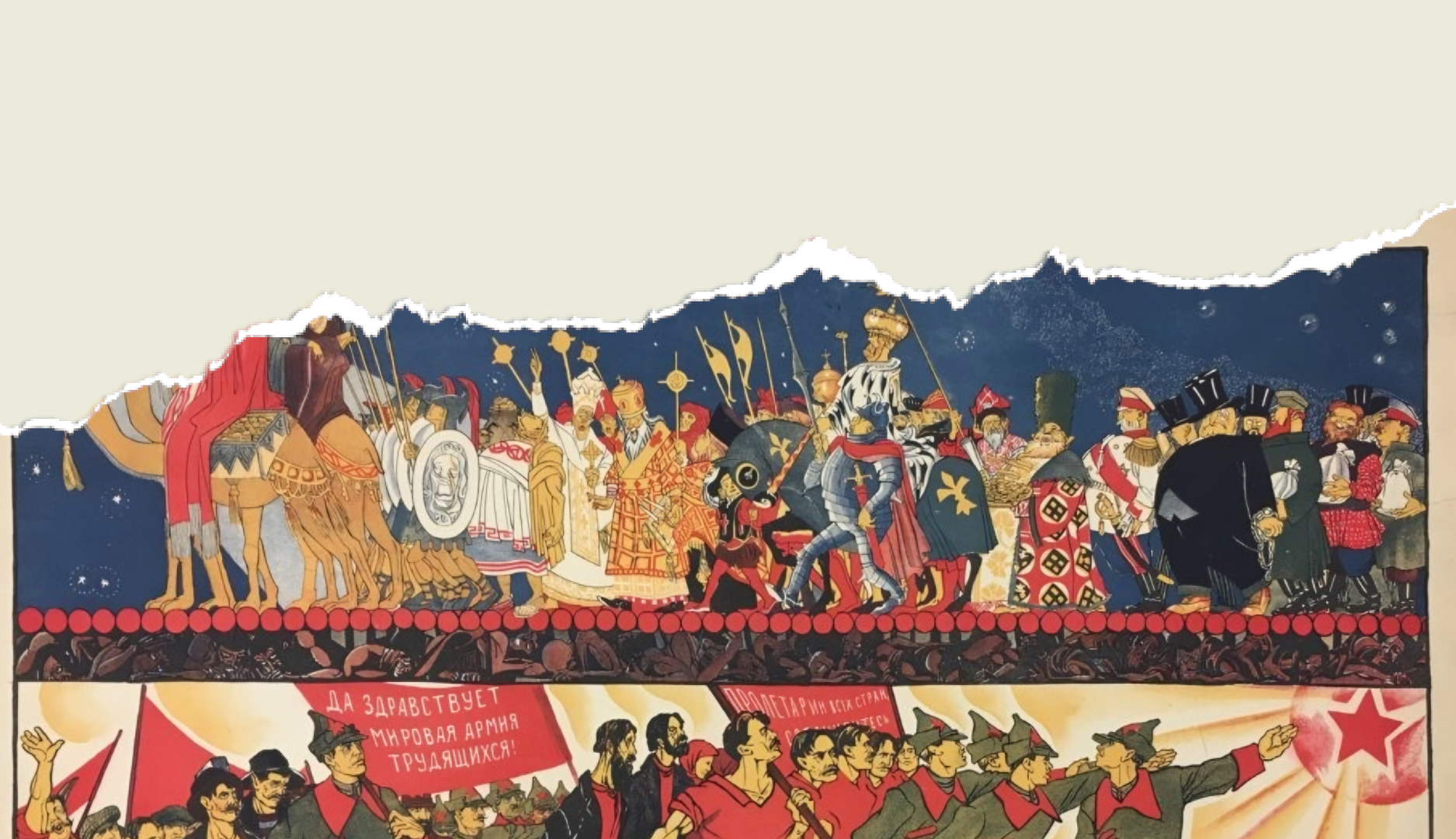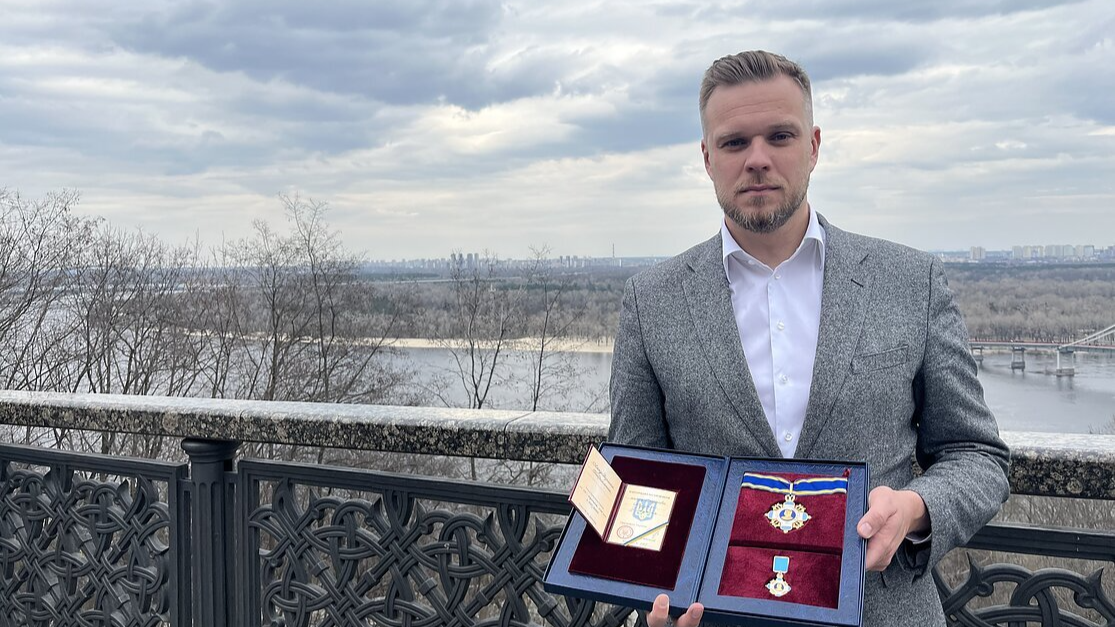If you’re a Kyiv Post reader and you’re still searching for a New Year’s resolution, I have a suggestion: Learn the Ukrainian language. But first, I’ve got a confession to make:
I am an alien living in Ukraine
When I say alien, I don’t mean I came here from another star system. However, I do come from a different country and culture and thus I am a stranger not familiar to Ukrainians – a foreigner.
JOIN US ON TELEGRAM
Follow our coverage of the war on the @Kyivpost_official.
Nevertheless, when you are a foreigner living abroad – an expatriate, or expat for short – you may feel like you’re on a strange new world, rather than just living in a slightly different culture in another country.
The best way is to immerse yourself in the culture and make friends in the country’s language, accompanied by tailored instruction and guidance from a qualified professional teacher. Here’s how I am doing this.
“Мені потрібно півтора кіло крил”
Meni potribno pivtora kilo kryl
“I need 1.5 kilos of wings”
Practical Ukrainian
Cooking is my passion: I love making dishes from many different cuisines. One day I needed about 1.5 kg of chicken wings for some ethnic variation that I don’t now recall. So, not knowing the colloquial shortcut I asked for chicken wings at the poultry counter in a supermarket. When asked how much I said a kilo and a half kilo—and that was the packaging I got them in: one order in a package with one kilo and another separate half kilo package.
When I related this to a Ukrainian, I learned to ask for a pivtora—a handy quantifier meaning 1.5 of whatever item you are looking for. “Мені треба півтора кілограми крил” (“Meni treba pivtora kilohramy kryl,” which means “I need one and a half kilograms of wings.”).

Russian Strikes on Kharkiv Kill 94 in 2024, Mayor Says
As I related in a previous Kyiv Post article, “Former US F-16 Instructor Pilot Finally Learns Ukrainian,” I had a small, limited background in Polish and some formal study of Russian in the US. I wanted to learn Ukrainian but there was a shortage of books, software, online resources, and teachers of the language in the States then, and now.
In the article, I interviewed Ksenia Golubytska, founder and director of Language Lab, an innovative Ukrainian language school partnering with Kyiv Post. At that point, I was a new student at the then-unaffiliated school.
I’ve been studying with Language Lab for nearly half a year and I use it daily. To stop the public bus (actually маршрутка, a marshrutka or “route taxi”) at my destination I now say на зупинці (na zupuintsi or “at the stop”). I greet colleagues each morning with доброго ранку (dobroho ranku).
In lessons with my Ukrainian teacher, Olena, I have studied things I am involved in, ranging from everyday interactions in public or private conversations to professional journalism and geopolitical topics, as well as personal hobbies, including that passion for cooking.
I’ve reviewed a Ukrainian language YouTube cooking video, shared my recipe for buckwheat waffles, and discussed flying aircraft from a pilot’s point of view. We’ve talked about playing music for fun and doing mechanical work on cars because I needed to fix them to drive to classes or work.
So, Olena has expertly tailored my lessons to my interests and needs.
Since the Language Lab interview, they have expanded their operations to include discounted online courses for volunteers in Ukraine and much more.
They also have an oft-updated blog, a newsletter, and a handy guide to “Ukrainian Festive Wishes, Toasts & Traditions” with phrases to spread holiday cheer and “Cheers!”
They have a great article on the origin of Ukraine’s ode to winter, at least that’s what many non-Ukrainians believe the “Carol of the Bells” to be. Find out the truth in the “Story behind Carol of the Bells: Shchedryk’s Global Journey.”
If you’d like to study with Language Lab, you can do lessons in person in Kyiv. They also have corporate team lessons, especially useful if you have an organization or business helping to rebuild Ukraine.
If you’re in the US, UK, Canada, or anywhere else this may be the only way to commit to learning Ukrainian online with a qualified teacher by using Skype/Zoom/Google Meet. It’s also convenient if you work from home, can’t get away from the office or home, or have unusual hours you keep.
In Kyiv, they have cultural events, including cookouts, excursions, and more. I have gone to a couple of these events where I met my online teacher and many others at Language Lab. Olena even reciprocated and came to my house for my Halloween party where she met several of my Kyiv Post colleagues and other friends.
My (minor) personal Ukrainian language struggles
It’s not just the vocabulary, it’s the pronunciation. Because I also speak some Russian, there are times when I revert to its way of saying some letters like “e” – which in Russian is “ye” but in Ukrainian is simply “e.”
Another holdover from Russian causing a mispronunciation is the incorrect use of the schwa sound in unstressed syllables, whereas in Ukrainian each vowel is given its full pronunciation. An example in English would be pronouncing the US state of Ohio as “uh-hi-uh” instead of “oh-hi-oh.”
Luckily for me, Olena corrects my transgressions.
Ukrainian Language to Resist Russian Aggression
The Kremlin – and Russia in general – has spent centuries trying to oppress and stamp out Ukrainian language and culture, even by adopting Ukrainian Christmas traditions, trying to recast them through Soviet propaganda. You can read about “How the Soviets Stole Ukrainian Christmas” in a Language Lab Blog.
The struggle against Russian aggression is ongoing as Radio Free Europe / Radio Liberty (RFE/RL) recently highlighted how Ukrainian educators are secretly teaching lessons in Ukrainian inside the occupied territories in Donbas, risking harassment and imprisonment under Moscow’s invaders.
Stamping out Ukrainian culture has always been part of the plan for a re-establishment of the authoritarian Russian Empire, as envisioned by Russian leader Vladimir Putin and his adviser Alexandr Dugin, that will oppose sovereign democracies in the West and beyond, as discussed by pro-Ukrainian YouTuber and former US Air Force officer Jake Broe.
In the video [from 9:21 to 10:42] Dugin said in English, “Without Ukraine Russia cannot become once more the empire. With Ukraine inside of Russian zone of control it will become the empire once more… This war or special military operation in Ukraine is about that.”

New Year’s Resolution: Learn Ukrainian
Whether you are an expatriate living in Ukraine, a volunteer helping those fighting for Ukraine’s right to independence, sovereignty and self-determination, a member of the Ukrainian diaspora, or simply a lifelong learner with sympathies for the plight of Ukraine—learn the Ukrainian language.
For more information about Language Lab’s Ukrainian language courses, culture, and community, click here.
You can also highlight the text and press Ctrl + Enter












